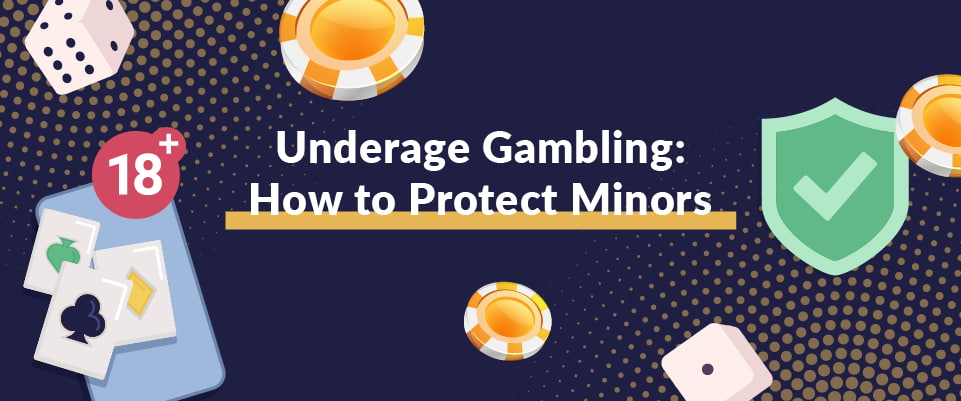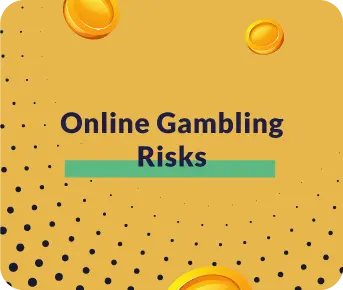Underage Gambling: How to Protect Minors in Ontario
Even though gambling is legal in Ontario, anyone who wants to participate must satisfy a few key conditions. One of the main requirements is that participants must be at least 19 years old.
Those who are not of legal age are considered underage, which means they cannot legally participate in gambling activities. Operators face severe repercussions if they provide their services to minors and if they fail to provide responsible gambling tools. Punishments can range from fines to the suspension or revocation of their gambling licence.

How Do Online Casinos Confirm Player Ages?
So, how do online gambling operators ensure that their customers are not under the legal age? This is where KYC comes into play. KYC, or Know Your Customer, is a mandatory process through which regulated online casinos are legally required to confirm the age, identity, and place of residence of all players.
Providing the operator with a copy of your driver’s licence, passport, or another piece of government-issued photo ID proves your age and identity. In most cases, a bank statement, utility bill, or other document bearing your current address and full name will verify your place of residence.
What Are The Signs of a Minor Engaging in Gambling Activities?
Identifying whether a minor is engaged in gambling activities can be challenging. However, there are certain signs to be aware of, including:
- Falling grades
- Diminished interest in social activities
- Becoming more aggressive, irritable, or anxious
- Noticeable changes in the amount of money your child possesses
- Your child frequently asking for or even stealing money from family or friends
- Regular discussions or positive references to various gambling activities
- Secretive behaviour or visible irritation when asked about potential problems
How Can Parents Prevent Their Children from Gambling Online?
Given modern technology like smartphones and VPNs, preventing a child from accessing gambling platforms can be a challenge. Nevertheless, here are some steps that can help reduce the likelihood of your child developing a gambling problem:
#1. Education
Engage in an open dialogue about the pitfalls of gambling. Break down the mechanics of gambling in understandable terms and explain the inevitability of house advantage.
#2. Website Blockers and Parental Controls: Various apps and computer programs effectively restrict access to certain sites, like online casinos. Some internet providers can even offer these restrictions without any additional downloads. Notable gambling-related website blockers include:
- Gamban
- Gamblock
- Betfilter
- Betblocker
- NetNanny
#3. Online Casino Account Security: If you maintain an online casino account, ensure your login details and other sensitive information, like credit card details, are stored securely and out of your child’s reach.
#4. Promote Healthy Screen Time: Implement consistent rules regarding screen time, covering duration, device-free zones, and permissible websites. Encourage outdoor activities that don’t involve electronic devices. And remember, leading by example is the best approach.
How Can We Address Underage Gambling?
Underage gambling presents significant risks, both immediate and long-term. The excitement of gaming might appeal to younger individuals, but the consequences they face are severe. To combat this issue:
#1. Preventive Tools
- KYC Checks: Implementing Know Your Customer procedures to verify age and identity, maintaining the integrity of the gaming industry.
- Software Blocking Apps: Utilizing applications like Net Nanny to restrict access to gambling sites for underage users.
#2. Role of Guardians, Educators, and the Community:
The primary responsibility to prevent early exposure lies with guardians and educators. They can support the underage members of their family by:
- Engaging in proactive measures
- Having honest dialogues with young individuals
#3. Education: Incorporating education about the dangers of underage gambling within school curriculums and community programs.
Through these efforts and a commitment to informed decisions, we can foster a safer environment for our youth, ensuring their well-being in the context of gambling.
Most Common Questions About Underage Gambling
Can minors gamble in Canada?
No. While the legal age for casino gambling and sports betting is 19 in Ontario, other provinces like Alberta and Quebec have set the legal gambling age at 18.
What are the dangers of underage gambling?
Underage gambling poses several risks. The most significant is the heightened probability of minors developing problematic gambling behaviours in adulthood. Other associated risks include social disinterest, Financial challenges, behavioural changes, and mental health concerns, including depression.
What is the legal gambling age in Ontario?
In Ontario, while you must be 19 to gamble in casinos or bet on sports, you can play lottery games at 18.
Which age group is most susceptible to gambling?
Young adults, specifically those aged 18-24, are the most vulnerable to developing problematic gambling habits.
Are there penalties for underage gambling?
If someone under 19 is caught gambling in Ontario, they might face a fine, although this is rare. Operators found accommodating underage gambling are subject to more stringent penalties, from fines to licence suspension or revocation.
What consequences can result from underage gambling?
The consequences of underage gambling span a broad spectrum, from financial difficulties and substance abuse to mental health issues like anxiety and depression.



